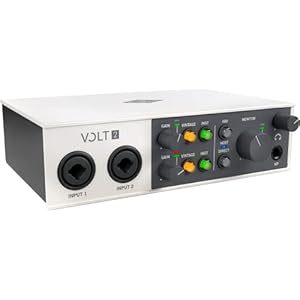GEMA Files Infringement Action Against Suno in German Court: ‘Providers of Generative AI Must Respect Copyright Law’


An aerial shot of Munich, including the city’s Olympic Stadium. Photo Credit: Christoph Keil
Two months and change after tagging OpenAI with a copyright lawsuit, Germany’s GEMA has officially submitted an infringement action against generative AI music platform Suno.
Berlin-headquartered GEMA filed that copyright complaint against Suno in the Munich Regional Court today. Besides following the mentioned November action targeting OpenAI, the newer suit arrives on the heels of GEMA’s “AI Charter” and proposed licensing framework for generative models.
In a nutshell, the charter and the framework concern creator and rightsholder compensation for the use of protected works in generative AI. GEMA’s proposed licensing approach in particular would give these parties a piece of the AI-system pie (referring to “all net income”) as compensation for both training and derivative outputs.
Unsurprisingly – and in keeping with several ongoing actions in the States – training and derivative outputs are likewise at the center of GEMA’s OpenAI and Suno suits.
Regarding the latter, as summed up by the filing entity, Suno allegedly used a number of GEMA-repped works to train “without paying remuneration.” And as Suno users can “make a song about anything” via text prompts, per the relevant website, the platform has allegedly been utilized to pump out “audio content that is confusingly similar to the original songs.”
Those allegedly infringed songs include Alphaville’s “Forever Young” and Lou Bega’s “Mambo No. 5,” to name a couple.
“GEMA was able to document that the system outputs content that obviously infringes copyrights,” the plaintiff summed up. “In terms of melody, harmony and rhythm, this content largely corresponds to world-famous works whose authors GEMA represents.”
“Generative AI tools such as the music tool from Suno Inc. make uninhibited use of compositions and texts that do not belong to them,” added GEMA supervisory board chairman Ralf Weigand. “If we don’t want to do without man-made music in the future, we urgently need a legal framework that guarantees authors an appropriate share of the value created by AI providers.
“Otherwise, we will very quickly reach the point where no one will be able to make a living from their creative work – a ‘brave new world’ after all human creativity in music has ended!” he concluded.
DMN reached out to Cambridge-headquartered Suno (which partnered with Timbaland in October 2024 and launched an Android app last month) for comment and received an automated response. But at the time of this writing, the company hadn’t followed up with a statement about the GEMA suit.
In any event, it’ll be worth closely monitoring the action’s status in Germany throughout 2025. Stateside, the major labels last year sued Suno as well as Udio for copyright infringement.
The AI upstarts promptly lawyered up with Latham & Watkins (which is also repping OpenAI and Anthropic in their own copyright battles) and doubled down on their well-documented fair use training position.
For obvious reasons, the RIAA pushed back against that position in clear-cut terms, we also reported. A cursory glance at the docket shows that the Suno legal battle is in full swing; the presiding judge last month signed off on a confidentiality and protective order concerning discovery materials.
Link to the source article – https://www.digitalmusicnews.com/2025/01/21/gema-suno-lawsuit/
Recommended for you
-
CME WIDI Master – Wireless MIDI Bluetooth 5 MIDI DIN 5 Adapter – Ultra Low Latency – MIDI Split/Merge – Synthesizer EWI Keytar Pedalboard Digital Piano Keyboard to MIDI, macOS, iOS, Android, Win
$59,00 Buy From Amazon -
Universal Audio Volt 2 USB Recording Studio Audio Interface
$189,00 Buy From Amazon -
1010music Blackbox Compact Sampling Studio
$649,00 Buy From Amazon -
Sboet Electronic Drum Set, 9-Drum Practice Pad with Headphone Jack, Roll-up Drum Kit Machine with Built-in Speaker Drum Pedals and Sticks 10 Hours Playtime, Great Christmas Holiday Gifts for Kids
$39,99 Buy From Amazon -
Broadway Gift Natural Wood Bass Electric Guitar with Case and Stand Replica Figurine 7 Inch
$29,99 Buy From Amazon -
Hindi. Spirit of Hindi Cinema – Large unique Authentic WAVE Studio Samples/Loops Library
$14,99 Buy From Amazon -
Image Line – FL Studio 20 Signature Edition Software
$299,00 Buy From Amazon -
DigitalLife 2m USB Type C to B MIDI Interface Converter Cable, Compatible with Windows 11 / macOS 14 Sonoma (Metal, Nylon Braided)
$9,99 Buy From Amazon













Responses